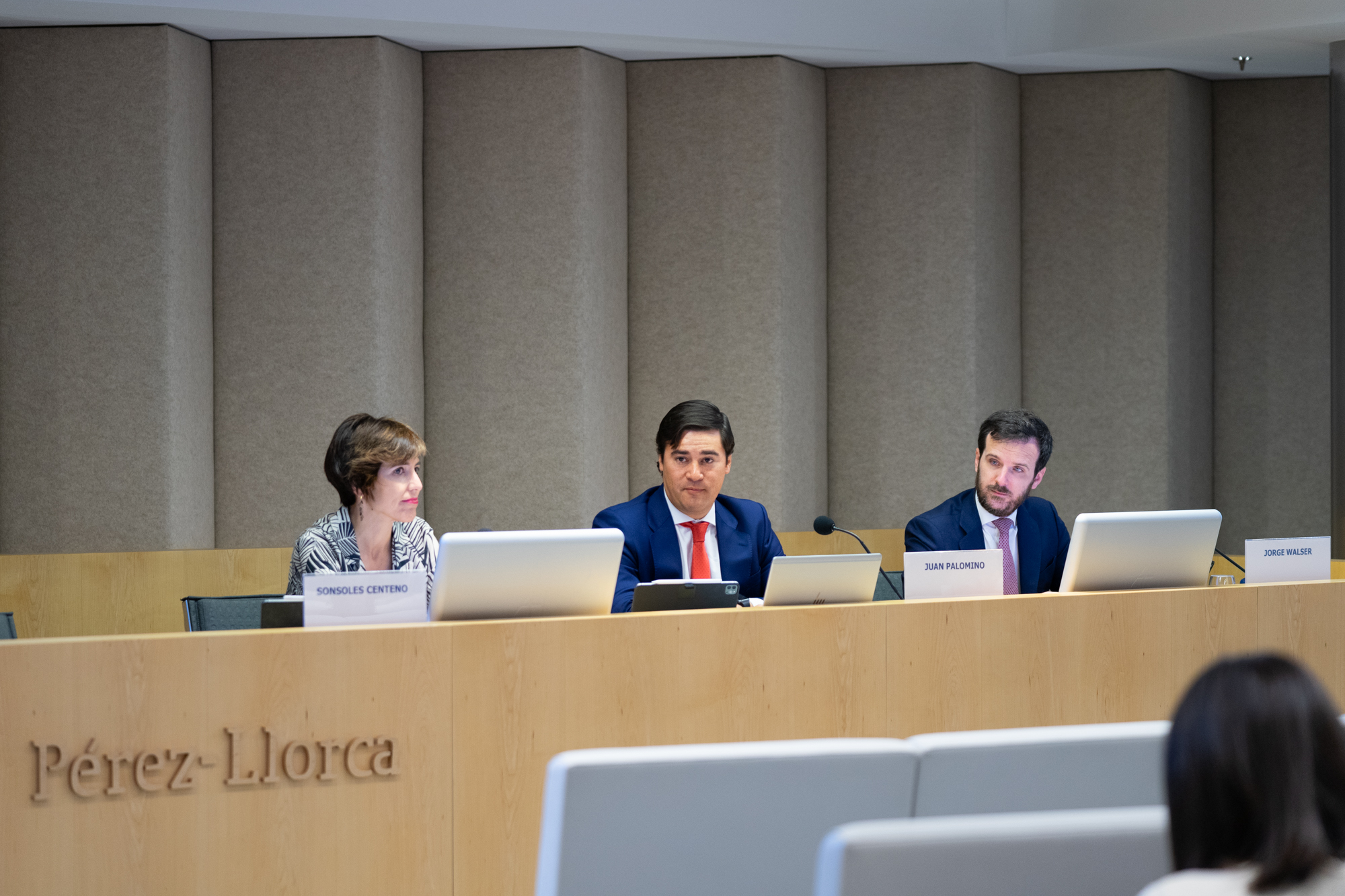Pérez-Llorca held a ‘Compliance Law Update’ session with Sonsoles Centeno, European Union Law and Competition partner and managing partner of the firm’s Brussels office, Juan Palomino, White Collar Crime and Investigations partner, and Jorge Walser, associate in this practice area, in which they analysed the emerging trends in the global panorama of international sanctions.
Opening the seminar, Sonsoles Centeno began by placing European regulation within a complex geopolitical context and highlighted the difficulty of enforcing sanctions, given that the existing regimes in the United States, the United Kingdom and the European Union are not identical, which can lead to difficulties in applying them to companies. She went on to stress that, in any case, EU regulations are not always easy to interpret, so if there is any doubt about the application of a particular provision, it should be understood in a broad sense, given the aim of the regulation in question. “Enforcement of restrictive measures requires a conservative and preventive approach,” Centeno said.
In addition, she highlighted Directive (EU) 2024/1226 on the definition of criminal offences and penalties for the violation of Union restrictive measures, which will enter into force on 20 May 2025 and is an important milestone in ensuring compliance with restrictive measures. Once transposed, non-compliance with these measures will be punishable under criminal law. In this regard, Juan Palomino added that the Directive will be decisive because not only will Spain comply with the obligations at EU level and introduce the circumvention of restrictive measures as criminal conduct in the Spanish Criminal Code, but it will also foreseeably have a knock-on effect in other areas. An example of this could be the administrative sanctions associated with non-compliance with restrictive measures affecting imports and exports, which to date have been classified only as serious or minor infringements and which, in line with the reform, should also be categorised as very serious infringements.
In addition, Palomino explained that the Directive criminalises wilful misconduct, but also opens up the possibility of the offence being committed through gross negligence, which could create a complex range of scenarios for companies: “The responsibility is shifted to companies to act as police in this area, giving them a position of guarantor in combating practices that circumvent restrictive measures, even indirectly, and, to a certain extent, obliging them to justify that they have done enough to avoid them.” These types of offences, which are usually configured as “blank criminal rules”, require a reference to administrative regulations, in this case particularly complex to interpret, which will be a great challenge for legal operators, especially in the criminal jurisdiction. “Adopting internal measures is crucial to establish a preventive strategy,” he stressed.
To conclude the session, Jorge Walser outlined the various preventive and reactive measures that organisations can take in the area of international sanctions. In preventive compliance, many sectors already have risk assessments in place which identify the exposure and potential sanctions applicable to the business. Specific controls, such as crisis protocols or third-party audits, are also in place to mitigate the risks of sanctions.
Lastly, reactive measures are effective tools when preventive actions have not been effective. One of the first things to do is to report to internal commissions so that the required information is presented correctly and the right person is contacted. In addition, if an internal investigation is necessary, it is necessary to document all processes to determine the facts and to assess the economic, legal and reputational damage caused by a risk event. “Taking rapid action is essential, but there is no one-size-fits-all approach. Each organisation needs to assess its own individual indicators and evaluate the different red flags that may arise,” Walser said.
